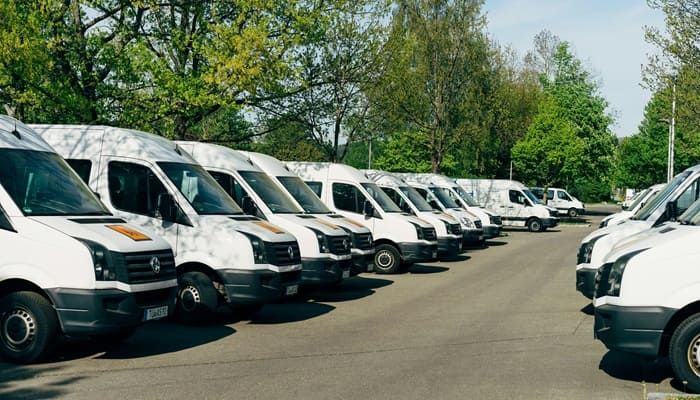Shipping logistics is the backbone of modern commerce, ensuring goods are transported safely and efficiently globally. Whether it’s safeguarding high-value shipments or managing everyday deliveries, secure logistics are vital to maintaining trust, reducing losses, and meeting customer expectations.
From implementing advanced technologies to choosing the right logistics partners, Ari Raptis highlights how every step in the supply chain plays a role in ensuring smooth operations. As trade expands, businesses must stay ahead of challenges by adopting innovative strategies, prioritizing employee training, and leveraging cutting-edge tools to enhance safety and efficiency.
What Secure Shipping Logistics Means and Why It Matters
Secure shipping logistics refers to the processes and systems to safeguard goods during transit. This involves minimizing risks such as theft, damage, or tampering while ensuring shipments reach their destination safely and intact. In today’s interconnected world, where businesses rely on global supply chains, the importance of secure logistics cannot be overstated.
The challenges in shipping security range from physical threats, like cargo theft, to logistical errors that can lead to lost or compromised goods. A slight lapse in security can result in substantial financial losses or harm to a company’s reputation. Consider how e-commerce thrives on trust. A single mishandled shipment could jeopardize customer loyalty.
Core Practices That Keep Shipments Safe
Adequate shipment security starts with proper packaging. Using durable materials and tamper-evident techniques protects goods from accidental damage and intentional interference. Precise and accurate labeling also plays a pivotal role, reducing the chances of misrouted packages or delays. Mistakes in documentation or labeling can create vulnerabilities, exposing shipments to unnecessary risks.
Another important practice is real-time tracking. Knowing the precise location of goods during transit helps businesses address issues promptly, such as rerouting shipments in response to unexpected delays. Companies that invest in comprehensive monitoring systems enhance security and build customer trust by offering transparency and reliability throughout the delivery process. Beyond that, implementing automated alerts can further bolster efficiency by notifying stakeholders of any unexpected changes or risks.
Advanced Tools and Technologies in Secure Logistics
Ari Raptis understands that technology has transformed secure shipping logistics, with tools like GPS tracking revolutionizing how shipments are monitored. These systems allow businesses to follow the movement of goods in real time, making identifying potential disruptions or security breaches easier. Additionally, tamper-evident seals and smart locks are physical deterrents, preventing unauthorized access and ensuring that any interference is immediately noticeable.
Artificial intelligence and machine learning also reshape risk prevention in the logistics sector. Predictive algorithms can analyze historical data and identify patterns that signal potential threats, enabling proactive measures before issues arise. In warehouses and transit hubs, security cameras and automated monitoring systems add another layer of protection, keeping a close eye on high-value shipments and ensuring a safer supply chain. Moreover, integrating Internet of Things (IoT) devices into logistics further enhances monitoring capabilities by enabling real-time environmental tracking, such as temperature or humidity for sensitive goods.
Choosing the Right Logistics Partner
Selecting the ideal logistics partner involves evaluating their reputation and track record. A reliable provider will have established systems to ensure shipments are handled carefully and protected at every stage of transit. Companies prioritizing certifications and compliance with industry standards often demonstrate a commitment to secure practices, giving clients peace of mind.
Beyond credentials, it’s important to consider their ability to adapt to specific needs. A logistics partner that offers tailored solutions, such as specialized packaging or security measures for high-value goods, can be a game-changer. Transparent communication and a proactive approach to addressing challenges further set exceptional providers apart, making them a valuable ally in maintaining supply chain integrity. Additionally, providers that invest in sustainability initiatives often bring innovative solutions that align with modern business priorities, further boosting their value.
Steps for Improving Shipment Security
Training employees to handle shipments securely is one of the most effective ways to reduce risks. When staff members understand the importance of following protocols, such as verifying package integrity and safeguarding sensitive information, the likelihood of errors or breaches diminishes significantly.
Another critical step is conducting regular audits of shipping processes. These assessments help identify vulnerabilities within the supply chain, such as gaps in documentation or weak points in transit. Addressing these issues early prevents them from escalating into more significant problems. Collaborating with logistics providers to develop tailored security strategies can also lead to innovative solutions, ensuring goods are protected from departure to arrival. Additionally, integrating feedback loops into the audit process can help refine strategies and adapt to evolving threats.
Trends and Tips for Smarter, Safer Shipping
Ari Raptis suggests that emerging technologies like blockchain are reshaping logistics by improving traceability and transparency. Digital ledgers allow businesses to track every shipment’s journey, reducing the risk of tampering or fraud. Similarly, drones are being explored as a delivery option for remote areas, offering secure and efficient alternatives to traditional methods. These tools not only reshape last-mile delivery but also reduce the environmental impact of logistics operations.
Individuals can enhance security by opting for insured shipping and using durable, tamper-resistant packaging. Tracking shipments throughout their journey provides peace of mind and allows for quick action if delays or issues arise. Meanwhile, industries increasingly focus on addressing cyber threats, recognizing the growing importance of digital security in an era where data breaches can disrupt entire supply chains.

































